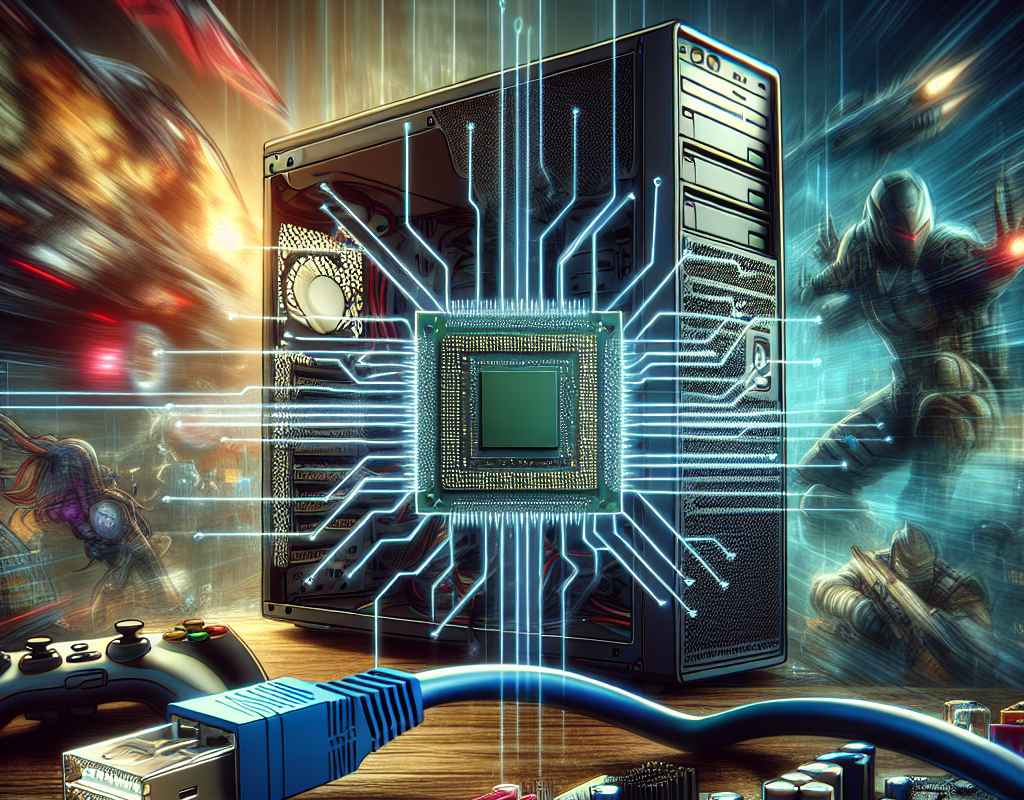Gaming PCs with integrated network prioritization are becoming an essential part of the gaming community. By prioritizing gaming traffic over other types of network traffic, these devices can greatly enhance your entire gaming experience. But what makes integrated network prioritization such a vital feature for gamers?
Understanding Integrated Network Prioritization
Integrated network prioritization is a technology that ensures the most important data packets for gaming are given priority over less critical network traffic. This results in increased performance and reduced latency for your games.
Basic Concepts
| Concept | Description |
|---|---|
| Latency | The delay between a user’s action and the game’s response. |
| Bandwidth | The amount of data that can be transmitted over your internet connection. |
| Packet | A small segment of data that is transmitted across a network. |
| Network Congestion | Occurs when the bandwidth is fully utilized, causing delays and lag. |
Key Advantages
Reduced Lag
One of the most significant advantages of gaming PCs with integrated network prioritization is reduced lag. Lag can be a game-breaker, especially in fast-paced games like first-person shooters or real-time strategy games. By prioritizing gaming packets, your commands reach the server faster, resulting in smoother gameplay.
Increased Competitive Edge
In multiplayer settings, every millisecond counts. With integrated network prioritization, you gain a competitive edge over players without this feature. It can mean the difference between a win and a loss in high-stakes games.
Stable Connections
Integrated network prioritization helps maintain a stable internet connection by managing bandwidth efficiently. This is especially useful in households where multiple devices are connected to the same network.
Additional Benefits
Enhanced Streaming Quality
Many gamers also stream their gameplay on platforms like Twitch or YouTube. Integrated network prioritization ensures that your live stream runs smoothly without compromising game performance.
Customizable Settings
Most modern gaming PCs with this feature offer customizable settings, allowing you to allocate bandwidth according to your needs. This flexibility can be particularly useful for fine-tuning your gaming experience.
User-Friendly Interfaces
The technology often comes with intuitive user interfaces, making it easy for even non-tech-savvy users to optimize their network settings efficiently.
Real-World Examples
Case Study: ASUS ROG Series
The ASUS ROG (Republic of Gamers) series uses GameFirst technology to prioritize gaming packets, ensuring that users experience minimal lag. According to user reviews, the feature noticeably improves performance.
Case Study: MSI Gaming Desktops
MSI’s Dragon Center software also offers network prioritization options, which have been praised for reducing latency during online gaming sessions.
Drawbacks to Consider
Cost
While integrated network prioritization provides numerous advantages, it may come at a higher cost compared to standard gaming PCs.
Complexity
Despite user-friendly interfaces, some users may find the concept complex initially.
Conclusion
Overall, the advantages of gaming PCs with integrated network prioritization far outweigh any potential drawbacks. Whether you’re a professional gamer or an enthusiast, investing in a PC with this feature can drastically improve your gaming experience, offering you reduced lag, a competitive edge, and more stable internet connections.
- Reduced Lag
- Increased Competitive Edge
- Stable Connections
- Enhanced Streaming Quality
- Customizable Settings
- User-Friendly Interfaces




